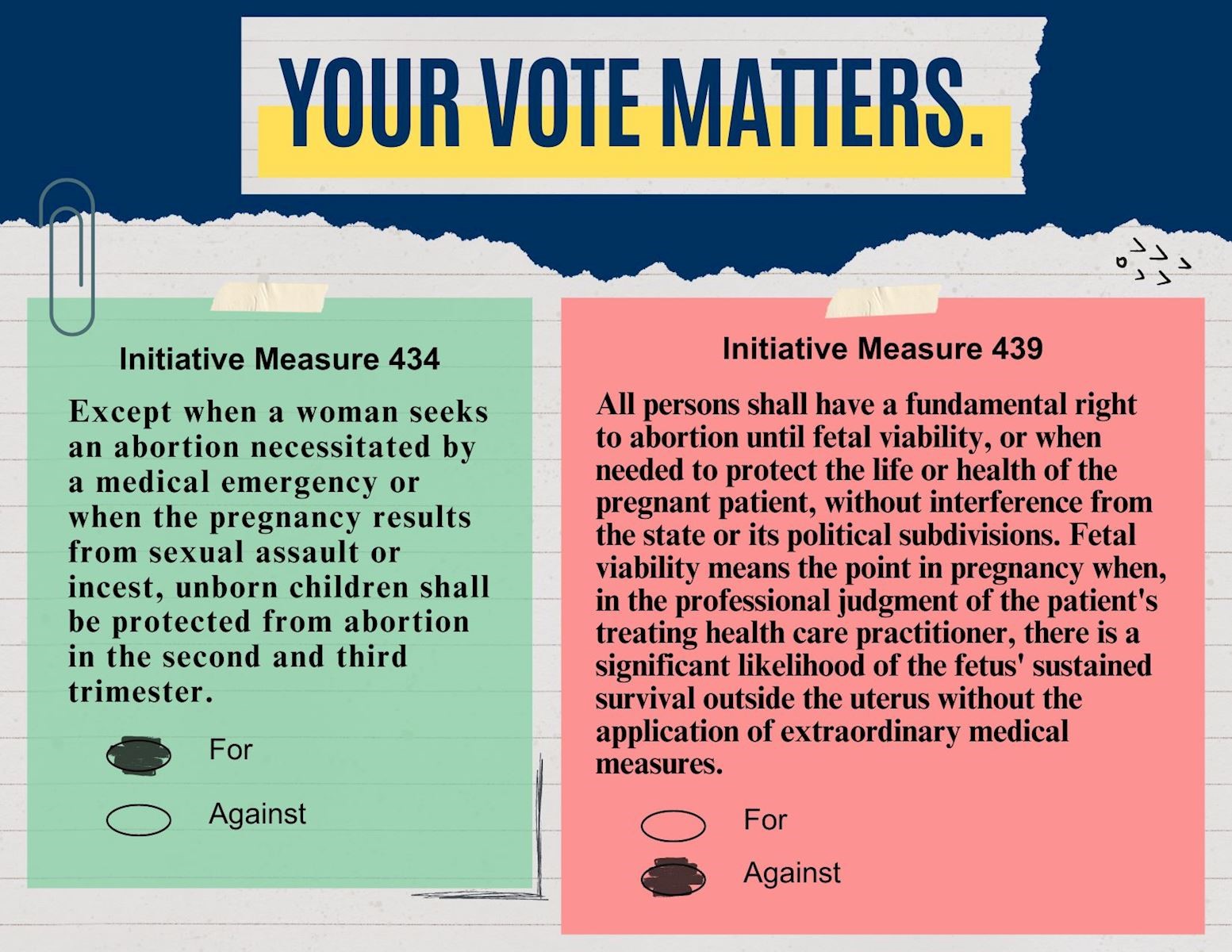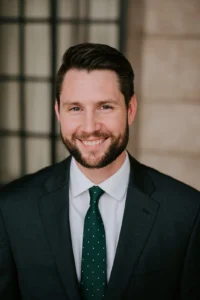
NEBRASKA CATHOLIC CONFERENCE
News
Vague language conceals dangers of pro-abortion ballot initiative
September 18, 2024
Voters beware.
The language of a ballot initiative that would create a constitutional right to abortion in Nebraska is dangerously vague and even manipulative, according to a licensed mental health therapist who used to work for an abortion clinic.
“I have a feeling it’s very intentionally vague,” Kristen New, a licensed mental health therapist in Omaha, said of the “Protect Our Rights” initiative.
Those who are pushing for the pro-abortion proposal – which will appear on ballots as Initiative Measure 439 – are “hoping that people aren’t going to look at the details,” she said.
New – whose views on abortion changed after she witnessed an ultrasound of a second-trimester abortion as it was performed – has since been active in the pro-life movement.
She filed a complaint with the Nebraska Secretary of State’s Office, trying to keep the pro-abortion initiative off the November ballot, but was unsuccessful in that attempt.
In a letter to Secretary of State Bob Evnen she argued that the wording was overly broad and covered too many topics, violating the Nebraska Constitution’s single-subject rule.
Following a Nebraska Supreme Court ruling on the matter, Evnen decided to allow the pro-abortion initiative to stay on the ballot, along with a competing pro-life alternative called Protect Women & Children, which will appear on ballots as Initiative Measure 434.
The pro-abortion plan would eviscerate decades of laws protecting mothers and the children in their wombs, while the Protect Women & Children proposal would keep the existing laws intact and allow the Legislature to pass laws with further protections, the Nebraska Catholic Conference (NCC) has said.
Critics of the pro-abortion ballot initiative – including the NCC and New – have blasted the measure for its vague, deceptive language.
“It just feels manipulative to me,” New said. “It feels like a manipulative attempt to make things foggy so that people don’t really know what it is that they’re voting for.”

Kristen New – COURTESY PHOTO
She said she and others want to make it clear to voters what could happen if the “Protect Our Rights” proposal was enacted, which is what other states are experiencing after voters approved similar initiatives with similar language.
The wording for the pro-abortion Initiative Measure 439 on November ballots:
“All persons shall have a fundamental right to abortion until fetal viability, or when needed to protect the life or health of the pregnant patient, without interference from the state or its political subdivisions. Fetal viability means the point in pregnancy when, in the professional judgment of the patient’s treating health care practitioner, there is a significant likelihood of the fetus’ sustained survival outside the uterus without the application of extraordinary medical measures.”
The intentional vagueness begins with “All persons,” New said, which would include minors.
“One of the biggest things that I am really upset and concerned about is that it could interfere with parental rights,” she said, “allowing minors to have medical procedures without any informed consent of the parents.”
“I have a hard time believing that every person who is pro-choice would want an amendment that takes away their parental rights,” she said in a recent phone interview. “There’s no way that I could believe that.”
“When you start messing with parental rights, that’s a huge problem,” New said.
Others, besides parents, should be concerned about that wording, said Marion Miner, NCC’s associate director of pro-life and family policy. Opponents of the pro-abortion initiative should include “any person who cares about the welfare of children because this would make them more vulnerable to people who don’t have their best interests in mind.”
New and Miner also have concerns about the definition of “fetal viability” and who would determine that.
According to the pro-abortion ballot initiative, that person doesn’t have to be a doctor but rather a “treating health care practitioner.”
Whoever that person might be has “total authority” to define viability, Miner said, with no accountability. That person also stands to benefit financially from the abortion, he said.

Marion Miner – NEBRASKA CATHOLIC CONFERENCE
Defining viability as having a “significant likelihood of the fetus’ sustained survival outside the uterus without the application of extraordinary medical measures” would make nearly all babies vulnerable to abortion, he said.
While most people think of babies being viable at 23 or 24 weeks of gestation, they typically need medical help breathing, eating, keeping body temperature regulated, etc. – all of which could be considered “extraordinary medical measures.”
“The definition of fetal viability is so wide open that it could mean any baby who would be eligible for NICU care is nonviable according to that definition,” Miner said. “And therefore, there’s a constitutional right to abort that baby.
“And that’s very, very, very late in the pregnancy, much later than what’s been represented by people in favor of the initiative, or who, frankly, are not being very clear-eyed about what the consequences can be.”
The NCC also points out that the vagueness of the exception for “the life or health of the pregnant patient” could mean almost anything, as courts have ruled that it could be understood as emotional, psychological and familial well-being.
Overall, in other states where voters approved ballot language similar to that of Initiative Measure 439, the consequences have been devastating.
Pro-abortion groups have filed lawsuits to get rid of existing state protections, such as licensing requirements and periodical health inspections – because those protections could be considered government interference with the right to abortion.
Another lawsuit would force taxpayers to pay for abortions because the procedure has been deemed a “fundamental right.”
“To have such a vague, overall sweeping law is just dangerous,” New said.
The NCC is asking people to help in several ways: 1) pray and sacrifice for the coming election, 2) register to vote and 3) help educate others about the contrasting abortion ballot initiatives.
The conference is urging Nebraska to join its 5 for Life Club. Participants are asked to choose five people at the beginning of each remaining week before the election, to talk to or message those five people about the ballot initiative and point them to resources, including those provided by the NCC.
“Catholics will play a crucial role in defeating this measure,” NCC executive director Tom Venzor has said.
READ MORE FROM THE CATHOLIC VOICE: